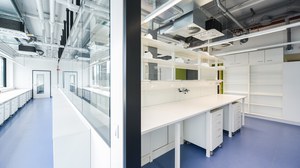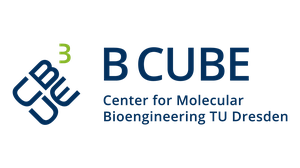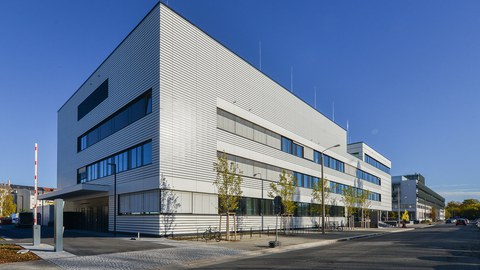About B CUBE
B CUBE - Center for Molecular Bioengineering at TUD Dresden University of Technology is part of the Center for Molecular and Cellular Bioengineering (CMCB) and focuses on the investigation of natural phenomena across scales and translates the ensuing knowledge into innovative materials and technologies thereby building bridges between Life Sciences and Engineering Sciences.
 © WTR Architekten
© WTR Architekten
History of our Research Center
The idea of a novel Center for Molecular Bioengineering was conceived in 2006. A team led by the B CUBE initiators Prof. Carsten Werner, Prof. Christoph Neinhuis and Prof. Daniel Müller developed a concept and requested start-up financing from the Federal Ministry of Education and Research (BMBF). In 2008, B CUBE secured five years of funding for two junior research groups and was officially founded as a "Center for Innovation Competence". Since then it has been operating as a central scientific unit at the TU Dresden.
In 2010, the two BMBF-financed junior research groups and two professorships created by the TU Dresden moved into interim space in an office building on Arnoldstrasse in Dresden.
In 2015, B CUBE was again given the opportunity to apply as part of the "Unternehmen Region" initiative and was able to successfully recruit two further junior research groups. At the end of 2018, the B CUBE team moved into the new building on Tatzberg. With the appointment of the Chair for Bioprospecting in 2019, the number of research groups grew to seven.
B CUBE promotes interdisciplinary research and development as well as teaching at the interface between life sciences and engineering. Teams of scientists from more than 20 countries work in the fields of biology, chemistry, physics, medicine and materials science.
In the immediate vicinity are the other TU Dresden CMCB institutes - the Center for Regenerative Therapies Dresden (CRTD) and the Biotechnology Center (BIOTEC), and the BioInnovationszentrum Dresden, which houses many biotechnology companies. There is also close cooperation with the nearby Max Planck Institute for Molecular Cell Biology and Genetics (MPI-CBG) and the School of Science of the TU Dresden.




